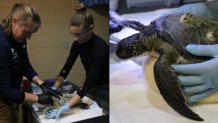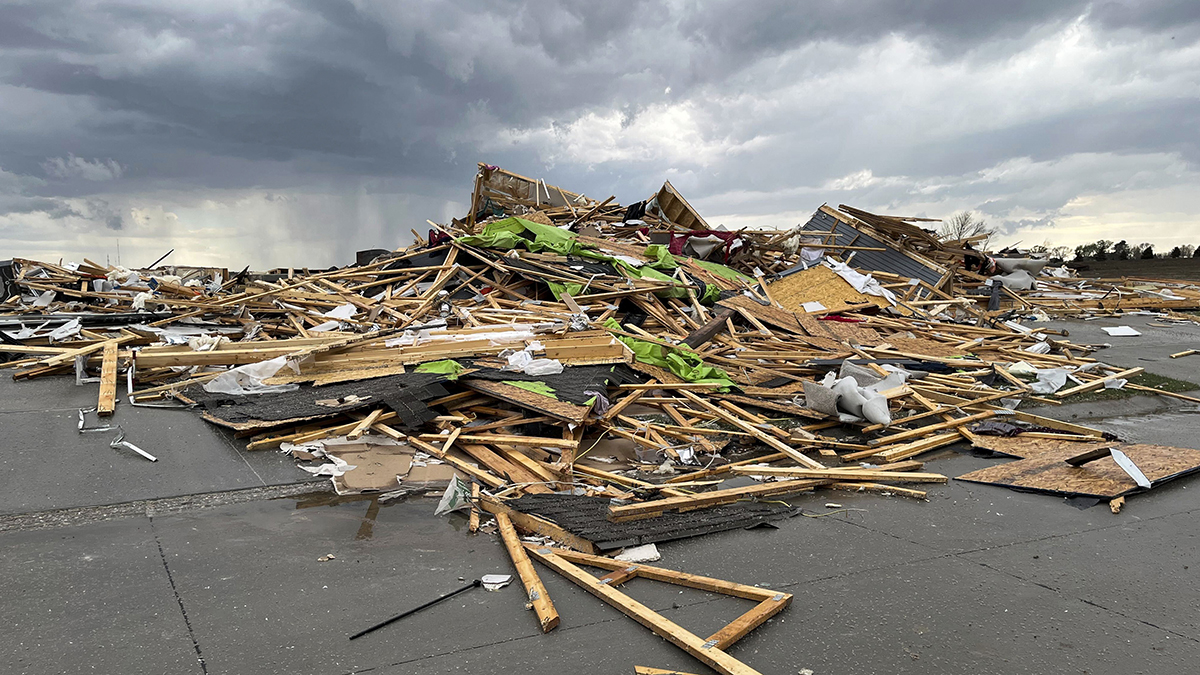It's so cold in Florida that iguanas are falling from their perches in suburban trees.
The National Weather Service in Miami said temperatures dipped below 40 degrees Fahrenheit early Thursday in parts of South Florida. That's chilly enough to immobilize green iguanas common in Miami's suburbs.
***Download the free NBC6 app to check First Alert Weather 24-7***
Members of media outlets tweeted photos of the event, including an iguana lying belly-up next to one writer's swimming pool.
The cold-blooded creatures native to Central and South America start to get sluggish when temperatures fall below 50 degrees Fahrenheit, said Kristen Sommers, who oversees the nonnative fish and wildlife program for the Florida Fish and Wildlife Conservation Commission.
If temperatures drop below that, iguanas freeze up. "It's too cold for them to move," Sommers said.
They're not the only reptiles stunned by this week's cold snap: Sea turtles also stiffen up when temperatures fall. The wildlife commission's biologists have been rescuing cold-stunned sea turtles found floating listlessly on the water or near shore, but no such rescue is planned for iguanas.

Well-meaning residents finding stiffened iguanas are advised to leave them alone, as they may feel threatened and bite once they warm up.
U.S. & World
"Don't assume that they're dead," Sommers said.
Green iguanas are an invasive species in Florida known for eating through landscaping and digging burrows that undermine infrastructure. They can grow over 5 feet long, and their droppings can be a potential source of salmonella bacteria, which causes food poisoning.
The wildlife commission has begun holding workshops to train homeowners and property managers to trap or manage iguanas. The reptiles may be easier to catch this week, Sommers said.
"This provides an opportunity to capture some, but I'm not sure it's going to be cold enough for long enough to make enough of a difference," she said. "In most cases, they're going to warm back up and move around again, unless they're euthanized."
A two-week-long cold snap with temperatures below 40 degrees Fahrenheit in 2010 killed off many iguanas, along with Burmese pythons and other invasive pests that thrive in South Florida's subtropical climate. Those populations have since rebounded.
Elsewhere in Florida, the effects of a brutal winter storm rolling up the East Coast were less exotic. It snowed briefly Wednesday in the state's capital, Tallahassee, for the first time in 28 years.



